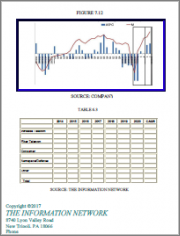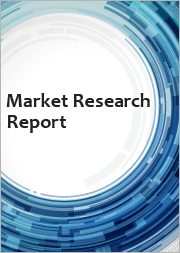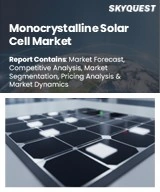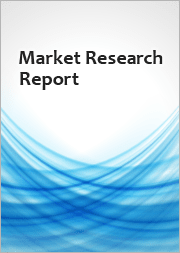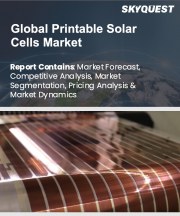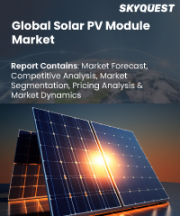
|
시장보고서
상품코드
1864156
태양전지 시장 : 기술별, 용도별, 설치 방법별, 최종사용자별 - 세계 예측(2025-2032년)Solar Cell Market by Technology, Application, Installation, End User - Global Forecast 2025-2032 |
||||||
태양전지 시장은 2032년까지 연평균 복합 성장률(CAGR) 13.12%로 3,448억 2,000만 달러에 이를 것으로 예측됩니다.
| 주요 시장 통계 | |
|---|---|
| 기준 연도 : 2024년 | 1,285억 8,000만 달러 |
| 추정 연도 : 2025년 | 1,458억 2,000만 달러 |
| 예측 연도 : 2032년 | 3,448억 2,000만 달러 |
| CAGR(%) | 13.12% |
기술 발전, 공급망 실태, 정책 방향을 간결하게 정리하여 태양전지 전략 및 도입에 대한 경영 판단에 참고할 수 있도록 도와드립니다.
본 Executive Summary는 기술 동향, 정책 변화, 공급망 진화에 초점을 맞추어 오늘날의 태양광 산업을 형성하고 있는 중요한 역학을 추출하고 있습니다. 업계 리더의 정성적 지식, 제조 및 연구기관의 기술 평가, 프로젝트 발표 및 모듈 조달 동향 등 거래 지표와 엄격한 교차 점검을 통합한 것입니다. 기업 전략 담당자, 투자 위원회, 정책 자문가들이 자본 배분, 기술 도입, 전략적 제휴에 영향을 미치는 단기 및 중기적 전환점을 간결하고 실용적인 관점에서 파악할 수 있도록 지원하는 것을 목표로 하고 있습니다.
시장 관점에서는 셀 구조의 가속화되는 기술 혁신과 국경을 초월한 무역을 규정하는 지정학적, 규제적 환경과의 교차점을 강조하고 있습니다. 이 요약은 제조 능력에 대한 지식, 신흥 재료의 R&D 진행 상황, 특정 응용 분야에 대한 운영상의 고려 사항을 통합하여 기술적 성능과 상업적 타당성을 조화시키려는 의사 결정권자를 대상으로 합니다. 무역 정책의 변화, 공급망 집중과 같은 위험 요인을 전면에 내세우는 한편, 첨단 셀 형태, 시스템 수준의 최적화, 라이프사이클 서비스와 같은 기회 영역도 강조하고 있습니다.
독자들은 투자의 우선순위를 정하고, 조달 리스크를 줄이는 방법, 그리고 빠르게 변화하는 산업 환경에서 경쟁 우위를 창출할 수 있는 전략적 방안에 대한 명확하고 증거에 기반한 지침을 기대할 수 있습니다.
태양광 산업은 기술적, 상업적, 규제적 측면의 세 가지 측면에서 동시에 변혁적인 변화를 겪고 있습니다. 점진적인 효율성 향상에서 혁신적인 탠덤 구조 개념에 이르기까지 셀 구조의 기술적 발전은 모듈 제조업체와 시스템 통합사업자들의 계산법을 바꾸고 있습니다. 그 결과, 업계는 최적화된 결정계 구조를 통한 단기적인 성능 향상과 페로브스카이트 탄뎀 및 기타 박막 기술 혁신을 통한 중기적 잠재력 사이에서 균형을 맞추고 있습니다. 제조 라인은 더 넓은 범위의 재료와 공정을 수용하기 위해 적응하고 있으며, 이는 자본 계획과 공급망 조달에 영향을 미치고 있습니다.
상업적 트렌드도 변화하고 있습니다. 프로젝트 개발자와 금융 관계자들이 보다 신뢰할 수 있는 성능 보증과 명확한 수명주기 비용 지표를 요구하게 되었기 때문입니다. 그 결과, 모듈의 인증 프레임워크와 보증 모델은 실제 열화 특성 및 양면발전을 통한 발전량 향상을 반영하는 형태로 진화하고 있습니다. 규제 환경도 유동적입니다. 관세 조치, 국내 제조 장려책, 지속가능성 기준이 기업의 투자처와 투자 방식을 재구성하고 있습니다. 공급망 복원력이 전략적 우선순위가 되어 원자재 공급업체 다변화, 중요 자재의 전략적 비축, 주요 제조 공정의 니어쇼어링(near-shoring)이 촉진되고 있습니다.
이러한 변화는 종합적으로 마찰과 기회를 모두 만들어내고 있습니다. 기술 탐색을 강력한 조달 전략과 적극적인 정책 참여와 통합하는 기업이 혁신을 지속 가능한 시장 우위로 전환할 수 있는 가장 좋은 위치에 서게 될 것입니다.
2025년 시행된 관세 조치가 태양광 분야 전반의 조달 관행, 공급망 현지화, 계약 및 자금 조달 프레임워크를 어떻게 재구성했는지를 분석합니다.
2025년에 시행된 관세 정책 변경의 누적 효과는 태양광 발전 도입의 근본적인 세계 수요 요인을 제거하지 않고 무역 흐름, 조달 전략, 경쟁 역학을 실질적으로 변화시켰습니다. 관세 조치는 다운스트림 통합 사업자에게 특정 수입 부품의 상대적 비용을 상승시키고, 공급업체 관계를 재평가하는 동시에 제조 및 업스트림 공정의 단기적 현지화에 대한 전략적 집중을 강화합니다. 이는 실제로 관세 변동과 물류 병목현상에 대한 노출을 줄이고, 지역적으로 통합된 공급망으로 자본이 이동하고 있음을 의미합니다.
공급망 재구축과 더불어 관세로 인한 불확실성은 조달 계약의 복잡성을 가속화하고 있습니다. 바이어 측은 현재 프로젝트의 경제성을 보호하기 위해 보다 엄격한 전가 조항, 법적 구속력 있는 성능 보증, 단계적 납품 조건을 협상하고 있습니다. 이러한 계약상의 엄격함은 대출 가능성 평가에도 영향을 미치고 있으며, 대출기관과 보험사는 공급 연속성 및 품질 보증에 대한 보다 상세한 증거를 요구하고 있습니다. 정책 전환은 또한 기가 와트급 프로젝트를 위한 인센티브, 파트너십, 허가 절차 간소화를 통해 국내 셀 및 모듈 생산 확대를 위한 민관의 노력을 촉진하고 있습니다.
단기적인 비용 조정과 관리 부담은 있지만, 이러한 정책 환경은 자본이 제조 현대화, 자동화, 인재 육성에 집중될 수 있는 인센티브를 창출하고 있습니다. 조달을 적극적으로 조정하고, 현지 역량에 투자하고, 계약 프레임워크를 개선하는 기업은 관세 관련 혼란을 줄이고, 무역 정세가 안정화되는 과정에서 우위를 점할 수 있을 것입니다.
기술 변형, 설치 형태, 사용 유형, 최종 사용자 프로파일을 연결하는 통합 세분화 프레임워크를 통해 기술 적합성이 상업적 가치를 주도하는 영역을 파악할 수 있습니다.
효과적인 세분화에 대한 통찰력을 얻으려면 기술적 특성을 최종 사용 요구 사항 및 설치 현실과 연결하여 가치가 축적되는 영역과 기술 적합성이 보급을 촉진하는 영역을 식별해야 합니다. 본 조사에서는 결정질 실리콘 기술과 박막 기술 모두를 대상으로 하며, 결정질 실리콘은 단결정과 다결정으로, 박막은 비정질 실리콘, 카드뮴 텔루르화물, 구리 인듐 갈륨 셀렌화 구리(CIGS)로 세분화하여 조사하였습니다. 이 두 가지 기술 축에 대한 분석을 통해 초기 효율, 열화 특성, 제조 유연성의 트레이드오프를 명확히 하여 계획 담당자가 셀 유형과 프로젝트 제약조건을 적절히 매칭할 수 있도록 지원합니다.
용도 축에서는 상업용, 주거용, 전력회사 규모별 도입 형태별로 시장을 분석합니다. 각 형태는 성능, 신뢰성, 자금 조달에 대해 서로 다른 요구 사항을 부과합니다. 예를 들어, 주거용 시스템에서는 전체 시스템의 통합성과 미적 고려사항이 우선시되는 반면, 전력회사 규모의 프로젝트에서는 균등화 에너지 수율과 장기적인 성능의 확실성이 더 중요하게 고려됩니다. 설치 형태는 이러한 판단을 더욱 세분화한다: 부유식, 지상 설치식, 옥상 설치식은 각각 토목 및 전기 공학에 미치는 영향이 다르며, 지상 설치식은 고정 경사형과 추적 시스템 구성으로 세분화되고, 옥상 설치식은 건물 부착형과 건물 통합형으로 세분화됩니다. 이러한 설치 범주는 설계 마진, BOS 비용, 허가 취득의 복잡성, 유지보수 접근성에 영향을 미칩니다.
마지막으로, 최종 사용자 세분화(상업, 정부, 산업, 주거)는 조달 일정, 위험 감수성, 장기 서비스 기대치를 형성합니다. 정부 및 대규모 산업 구매자는 일반적으로 엄격한 규정 준수 문서와 장기 보증을 요구하는 반면, 상업 및 주거 부문은 빠른 도입과 비용 확실성을 우선시할 수 있습니다. 이러한 세분화 차원이 어떻게 교차하는지를 이해하면 기술 속성을 고객의 우선순위와 일치시키고, 타겟팅된 제품 개발, 자금 조달 모델, 시장 출시 전략을 수립할 수 있습니다.
정책적 인센티브, 제조 강점, 도입 우선순위를 비교한 지역별 분석은 세계 태양광 시장에서 전략적 기회를 결정합니다.
지역별로 정책 프레임워크, 자원 부존량, 산업 역량이 크게 다르기 때문에 지역별 동향은 전략적 의사결정에 있어 매우 중요합니다. 미주 시장은 주 및 연방 차원의 강력한 인센티브, 대규모 발전 프로젝트의 풍부한 파이프라인, 국내 제조 능력 및 밸류체인 통합의 확대 추세에 의해 주도되고 있습니다. 이 지역에서는 은행 대출이 가능한 프로젝트 실행과 고도화되는 자금 조달 구조가 중요시되며, 대규모 개발업체와 수직 통합형 공급업체를 지원하고 있습니다.
유럽, 중동 및 아프리카의 규제 상황은 다양하지만, 대체로 야심찬 탈탄소화 목표, 높은 계통연계 기준, 순환 경제 및 재활용에 대한 관심 증가를 지지하고 있습니다. 유럽 시장 구조는 계통 안정성, 축전 시스템 통합, 분산형 에너지 자원을 평가하는 규제 메커니즘을 우선시하는 경향이 있습니다. 중동은 비용 경쟁력을 중시하는 대규모 태양광 프로젝트를 지속적으로 추진하고 있으며, 아프리카의 일부 시장에서는 전기화와 분산형 솔루션과 연계된 높은 성장 잠재력을 보여주고 있습니다.
아시아태평양은 제조 규모와 생산 혁신의 중심지이며, 웨이퍼에서 모듈까지 제조 능력, 첨단 셀 조사, 고밀도의 다운스트림 설치 생태계를 보유하고 있습니다. 이 지역의 정책적 개입은 수출 지향적인 산업 정책부터 내수 가치 확보를 위한 보조금 프로그램까지 다양합니다. 이러한 지역적 차이는 공급업체 선정부터 자금 조달 조건, 제품 인증 요건에 이르기까지 모든 요소에 영향을 미치며, 지리적 전략이 경쟁력 구축의 핵심 요소로 작용하고 있습니다.
경쟁 구도, 수직 통합 전략, 기술 개발 파트너십 분석을 통해 태양광 생태계에서 장기적으로 가치를 창출할 수 있는 기업을 식별합니다.
태양전지 분야경쟁 구도는 통합 제조업체, 전문 기술 개발 기업, 서비스 지향적 제공업체가 혼합되어 계층화된 가치사슬을 형성하고 있습니다. 주요 업체들은 웨이퍼에서 모듈까지 제조 공정 확대에 집중하는 동시에, 수익률 확대를 뒷받침하는 기술 로드맵을 유지하기 위해 차세대 셀 컨셉에 대한 투자를 진행하고 있습니다. 이들 기업은 웨이퍼-셀 모듈 전 공정에서 가치를 포착하는 수직계열화를 추구하며, 원료 공급업체와의 장기 공급계약을 우선적으로 체결하여 생산량의 안정성을 확보하고 있습니다.
전문 기술 개발 기업은 효율성과 내구성을 획기적으로 향상시키는 혁신적인 셀 및 모듈 구조, 첨단 코팅 공정, 봉지 화학 기술에 집중하고 있습니다. 탠덤 구조의 개념 추진, 양면 수광 성능 향상, 열화 경로 감소에 있어 그 역할이 매우 중요합니다. 엔지니어링, 조달, 건설 기업, O&&M(운영 및 유지보수) 전문 기업, 시스템 통합사업자를 포함한 서비스 제공업체는 예지보전 및 성능 최적화 서비스를 통해 신뢰할 수 있는 현장 성능을 실현하고, 총소유비용을 절감하여 부가가치를 제공합니다.
개발 위험을 분담하고 상용화를 가속화하기 위해 전략적 파트너십과 공동 연구개발 컨소시엄이 점점 더 보편화되고 있습니다. 지적재산권 관리, 신기술의 융자 가능성, 다양한 기후 조건에서 장기적인 성능 입증 능력은 파트너 선정과 고객 신뢰에 영향을 미치는 주요 차별화 요소입니다. 제조 규모와 검증된 기술 로드맵, 그리고 강력한 다운스트림 서비스 제공이 결합된 기업이 태양광 생태계 전반에서 다면적인 가치를 포착하는 데 가장 유리한 위치를 차지할 것입니다.
경쟁력 강화를 위한 전략적 우선순위의 실행 가능한 일련의 노력: 공급망 다각화, 제조의 유연성, 융통성 보장, 정책적 참여, 순환성
업계 리더은 성장을 지속하고 정책 및 시장 충격에 대한 노출을 줄이기 위해 기술 투자, 공급망 전략, 상업화 경로를 일치시키는 협력적 행동을 추진해야 합니다. 첫째, 중요 자재 공급망을 다변화하고, 원자재 및 핵심 부품의 지속적인 공급을 보장하기 위한 다층적인 비상 대응 계획을 수립해야 합니다. 다음으로, 결정계와 박막 공정의 전환 및 탠덤 셀 조립에 대응할 수 있는 자동화 및 유연한 제조 설비에 선택적으로 투자하여 자본 리스크를 줄이고 기술 변화에 빠르게 대응할 수 있도록 해야 합니다.
다음으로, 엄격한 현장 검증과 투명한 성능 기록을 통해 은행 대출 가능성을 우선시해야 합니다. 이를 통해 자금 조달 조건이 개선되고 고객 기반이 확대됩니다. 기업들은 정책 입안자들과 적극적으로 협력하여 현실적인 인센티브 프레임워크를 구축하고, 국내 제조 목표와 경쟁력 있는 조달이 양립할 수 있는 기준을 제시해야 합니다. 또한, 모듈과 셀의 재활용 및 재사용 경로를 포함한 라이프사이클 전략을 수립하여 순환성을 높이고, 진화하는 지속가능성 요구사항에 부합할 수 있도록 합니다.
마지막으로, R&D 역량과 제조 규모, 다운스트림 공정 실행 능력을 결합한 전략적 파트너십을 구축하는 것이 중요합니다. 소재 개발, 파일럿 제조, 전개에 있어서도 내부 역량과 외부 협력사를 연계하여 유망한 기술 시장 출시 기간을 단축하고 위험을 분담할 수 있습니다. 이러한 조치들을 통합적으로 실행함으로써 기술적 우위를 지속 가능한 상업적 성장으로 전환할 수 있습니다.
엄격한 결론을 보장하기 위해 경영진 인터뷰, 기술 브리핑, 공급망 매핑, 삼각 검증을 통한 2차 정보 검증을 결합한 혼합 방법론 조사 접근 방식에 대해 설명합니다.
본 경영분석의 조사방법은 1차 정보와 체계적인 2차 검증을 통합하여 견고성과 실무적 관련성을 보장합니다. 1차 조사에서는 제조, 프로젝트 개발, 재무, 재료과학 분야의 경영진을 대상으로 구조화된 인터뷰를 실시했으며, 연구소 팀 및 파일럿 생산 운영자와의 기술 브리핑을 통해 보완했습니다. 이러한 대화를 통해 로드맵, 운영상의 제약, 도입 일정에 대한 직접적인 통찰력을 얻었고, 시나리오 구축과 리스크 평가에 반영되었습니다.
2차 검증은 공개 정보, 규제 당국에 제출된 서류, 특허 현황, 프로젝트 수준의 발표 등 엄선된 세트를 사용하여 단일 소스에 대한 의존성을 피하기 위해 상호 검증을 실시했습니다. 공급망 매핑은 거래 지표와 물류 데이터를 활용하여 집중 지점과 잠재적 병목 지점을 파악했습니다. 금융 및 대출 가능성에 미치는 영향은 대출기관 및 보험사와의 인터뷰, 최근 유틸리티 규모 및 상업적 조달에 사용된 계약 프레임워크의 검토를 통해 평가되었습니다.
데이터 스트림 간 삼각측량 및 전문 지식을 가진 전문가와의 반복적인 검토 주기를 통해 분석의 엄격성을 유지했습니다. 민감도 분석과 시나리오 플래닝을 통해 대체 정책 및 기술 도입 경로에 따른 결론의 내성을 검증했습니다. 그 결과, 기초 가정과 조사 방법의 한계에 대한 명확성을 유지하면서 의사 결정에 정보를 제공하는 것을 목표로 하는 증거 기반 통합 분석이 이루어졌습니다.
경영 의사결정을 위한 전략적 요구사항의 통합: 기술적 무결성, 공급망 탄력성, 지역적 차별화, 은행 대출 가능성 강조
결론적으로, 태양전지 부문은 기술 혁신, 정책 환경의 진화, 공급망의 변화가 교차하면서 경쟁 우위를 재구축하고 있는 전환점에 서 있습니다. 제품 개발을 용도별 요구사항에 맞게 조정하고, 제조 유연성에 투자하고, 공급망 탄력성을 추구하는 기업은 정책 변동 위험에 대한 노출을 줄이고, 도입 패턴의 다양화에 따른 새로운 기회를 얻을 수 있을 것입니다. 결정계와 박막 기술의 발전이 상호 작용하고 신흥 탠덤 구조와 결합하여 기술적 우수성과 상업적 실용성을 모두 평가할 수 있는 다양한 차별화 경로를 창출하고 있습니다.
지역 전략의 중요성은 그 어느 때보다 높아질 것입니다. 미주, 유럽, 중동 및 아프리카, 아시아태평양에서는 우대정책, 산업정책, 계통연계 이슈가 다르기 때문입니다. 기업은 세계 규모와 현지 실행력을 동시에 충족하는 민첩한 접근 방식을 채택해야 합니다. 마지막으로, 업계 동향은 은행 대출이 가능한 실적, 신뢰할 수 있는 라이프사이클 전략, 그리고 상용화를 가속화할 수 있는 파트너십의 실용화 능력을 보여주는 기업에게 유리하게 작용합니다. 이러한 통찰력을 우선순위에 따른 투자, 재검토된 조달 관행, 그리고 목표에 맞는 정책 참여로 전환하는 경영진은 지속적인 변화 속에서 조직이 번영할 수 있는 입지를 확보할 수 있습니다.
자주 묻는 질문
목차
제1장 서문
제2장 조사 방법
제3장 주요 요약
제4장 시장 개요
제5장 시장 인사이트
제6장 미국 관세의 누적 영향 2025
제7장 AI의 누적 영향 2025
제8장 태양전지 시장 : 기술별
- 결정 실리콘
- 단결정
- 다결정
- 박막
- 아몰퍼스 실리콘
- 카드뮴 텔룰라이드
- 구리 인듐 갈륨 셀렌화물
제9장 태양전지 시장 : 용도별
- 상업용
- 주택용
- 대규모 발전용
제10장 태양전지 시장 : 설치별
- 부유식
- 지상 설치형
- 고정 경사형
- 추적 시스템
- 지붕 설치형
- 건물 부대형
- 건물 일체형
제11장 태양전지 시장 : 최종사용자별
- 상업
- 정부
- 산업
- 주택
제12장 태양전지 시장 : 지역별
- 아메리카
- 북미
- 라틴아메리카
- 유럽, 중동 및 아프리카
- 유럽
- 중동
- 아프리카
- 아시아태평양
제13장 태양전지 시장 : 그룹별
- ASEAN
- GCC
- EU
- BRICS
- G7
- NATO
제14장 태양전지 시장 : 국가별
- 미국
- 캐나다
- 멕시코
- 브라질
- 영국
- 독일
- 프랑스
- 러시아
- 이탈리아
- 스페인
- 중국
- 인도
- 일본
- 호주
- 한국
제15장 경쟁 구도
- 시장 점유율 분석, 2024
- FPNV 포지셔닝 매트릭스, 2024
- 경쟁 분석
- LONGi Green Energy Technology Co., Ltd.
- JinkoSolar Holding Co., Ltd.
- JA Solar Technology Co., Ltd.
- Trina Solar Co., Ltd.
- Canadian Solar Inc.
- First Solar, Inc.
- Hanwha Q CELLS Co., Ltd.
- Risen Energy Co., Ltd.
- GCL System Integration Technology Co., Ltd.
- Seraphim Energy Group Co., Ltd.
The Solar Cell Market is projected to grow by USD 344.82 billion at a CAGR of 13.12% by 2032.
| KEY MARKET STATISTICS | |
|---|---|
| Base Year [2024] | USD 128.58 billion |
| Estimated Year [2025] | USD 145.82 billion |
| Forecast Year [2032] | USD 344.82 billion |
| CAGR (%) | 13.12% |
Concise synthesis of technological progress, supply chain realities, and policy vectors to inform executive decisions on solar cell strategy and deployment
This executive summary distills the critical dynamics shaping the solar cell industry today, focusing on technology trajectories, policy shifts, and supply chain evolution. It synthesizes qualitative intelligence from industry leaders, technical assessments from manufacturing and research labs, and rigorous cross-checking against transactional indicators such as project announcements and module procurement trends. The objective is to equip corporate strategists, investment committees, and policy advisors with a concise, actionable view of near- to medium-term inflection points that will influence capital allocation, technology adoption, and strategic partnerships.
From a market perspective, the narrative emphasizes the intersection of accelerating innovation in cell architectures and the geopolitical and regulatory environment that governs cross-border trade. By integrating insights on manufacturing capacity, R&D progress in emergent materials, and operational considerations for application-specific deployments, this summary targets decision-makers who must reconcile technical performance with commercial viability. It foregrounds risk vectors such as trade policy changes and supply chain concentration while also highlighting opportunity spaces including advanced cell formats, system-level optimization, and lifecycle services.
Readers should expect clear, evidence-based guidance about where to prioritize investment, how to de-risk procurement, and what strategic moves will likely create competitive advantage in a rapidly evolving industry landscape.
The solar cell landscape is undergoing transformative shifts that are simultaneously technological, commercial, and regulatory. Technological advances in cell architectures-ranging from incremental efficiency improvements to disruptive tandem concepts-are changing the calculus for module makers and system integrators. As a result, the industry is balancing short-term performance gains from optimized crystalline formats against medium-term potential from perovskite tandems and other thin-film innovations. Manufacturing lines are therefore adapting to support a broader range of materials and processes, which in turn impacts capital planning and supply chain sourcing.
Commercial dynamics are shifting as project developers and financiers demand more bankable performance guarantees and clearer lifecycle cost metrics. Consequently, module certification frameworks and warranty models are evolving to reflect real-world degradation profiles and bifacial yield contributions. Regulatory environments are also in flux: tariff actions, domestic manufacturing incentives, and sustainability standards are reshaping where and how companies invest. Supply chain resilience has become a strategic priority, prompting diversification of raw material suppliers, strategic stockpiling practices for critical inputs, and nearshoring of key manufacturing steps.
Taken together, these shifts create both friction and opportunity. Companies that integrate technology scouting with robust procurement strategies and active policy engagement will be best positioned to convert innovation into durable market advantage.
Analysis of how tariff measures enacted in 2025 have reshaped procurement practices, supply chain localization, and contractual and financing frameworks across the solar cell sector
The cumulative effects of tariff policy changes implemented in 2025 have materially altered trade flows, sourcing strategies, and competitive dynamics without eliminating the underlying global demand drivers for photovoltaic deployment. Tariff measures have increased the relative cost of certain imported components for downstream integrators, prompting a reassessment of supplier relationships and increasing the strategic emphasis on near-term localization of manufacturing and upstream processing. In practice, this means capital is shifting toward regionally integrated supply chains that reduce exposure to tariff volatility and logistical bottlenecks.
In addition to supply chain reconfiguration, tariff-induced uncertainty has accelerated contractual complexity in procurement. Buyers now negotiate more stringent pass-through clauses, enforceable performance guarantees, and staged delivery terms to protect project economics. This heightened contractual rigor influences bankability assessments, where lenders and insurers require more granular evidence of supply continuity and quality assurance. The policy shift has also stimulated public and private initiatives to scale domestic cell and module fabrication through incentives, partnerships, and streamlined permitting for gigawatt-scale projects.
Despite near-term cost adjustments and administrative overhead, the policy environment has created incentives for capital to flow into manufacturing modernization, automation, and workforce development. Companies that proactively adapt procurement, invest in local capabilities, and refine contractual frameworks will mitigate tariff-related disruption and capture advantage as the trade landscape stabilizes.
Integrated segmentation framework linking technology variants, installation formats, application types, and end-user profiles to reveal where technical fit drives commercial value
Effective segmentation insight requires marrying technology characteristics with end-use requirements and installation realities to identify where value accrues and where technical fit drives adoption. The market is studied across Crystalline Silicon and Thin Film technologies, with Crystalline Silicon further delineated into Monocrystalline and Polycrystalline variants, and Thin Film further categorized into Amorphous Silicon, Cadmium Telluride, and Copper Indium Gallium Selenide. This dual-technology lens clarifies trade-offs between upfront efficiency, degradation behavior, and manufacturing flexibility, helping planners match cell type to project constraints.
On the application axis, the market is studied across Commercial, Residential, and Utility Scale deployments, each of which imposes distinct performance, reliability, and financing expectations. For instance, residential systems prioritize balance-of-system integration and aesthetic considerations, whereas utility-scale projects weight levelized energy yield and long-term performance certainty more heavily. Installation modality further refines these decisions: Floating, Ground Mounted, and Rooftop installations have unique civil and electrical engineering implications, with Ground Mounted further examined across Fixed Tilt and Tracking System configurations, and Rooftop subdivided into Building Attached and Building Integrated approaches. These installation categories influence design margins, BOS costs, permitting complexity, and maintenance access.
Finally, end-user segmentation-Commercial, Government, Industrial, and Residential-shapes procurement timelines, risk tolerance, and long-term service expectations. Government and large industrial buyers typically demand rigorous compliance documentation and extended warranties, while commercial and residential segments may prioritize rapid deployment and cost certainty. Understanding how these segmentation dimensions intersect enables targeted product development, financing models, and go-to-market strategies that align technical attributes with customer priorities.
Comparative regional analysis of policy incentives, manufacturing strengths, and deployment priorities that determine strategic opportunities across global solar cell markets
Regional dynamics are critical to strategic decision-making because policy frameworks, resource endowments, and industrial capabilities vary significantly across geographies. In the Americas, markets are driven by a strong combination of state and federal incentives, expansive project pipelines in utility-scale deployments, and growing momentum for domestic manufacturing capacity and value-chain integration. This region emphasizes bankable project execution and increasingly sophisticated financing structures, which supports larger developers and vertically integrated suppliers.
In Europe, Middle East & Africa, the regulatory landscape is varied but generally favors ambitious decarbonization targets, high grid integration standards, and increasing attention to circularity and recycling. Europe's market architecture often prioritizes grid stability, integration of storage, and regulatory mechanisms that reward distributed energy resources. The Middle East continues to pursue large-scale solar projects with a focus on cost competitiveness, while several African markets present high-growth potential tied to electrification and distributed solutions.
Asia-Pacific remains the epicenter of manufacturing scale and production innovation, with significant capacity in wafer-to-module fabrication, advanced cell research, and dense downstream installation ecosystems. Policy interventions in the region range from export-oriented industrial policy to domestic subsidy programs intended to secure local value capture. Taken together, regional variability shapes everything from supplier selection to financing terms and product certification requirements, making geographic strategy a core component of competitive positioning.
Examination of competitive structures, vertical integration strategies, and technology-development partnerships that determine which players capture long-term value in the solar cell ecosystem
Competitive dynamics in the solar cell space are characterized by a mix of integrated manufacturers, specialized technology developers, and service-oriented providers that together create a layered value chain. Leading manufacturers focus on scaling wafer-to-module operations while simultaneously investing in next-generation cell concepts to maintain a technology roadmap that supports margin expansion. These firms pursue vertical integration to capture value across wafer, cell, and module steps, and they prioritize long-term supply agreements with raw material suppliers to secure throughput stability.
Specialized technology developers concentrate on breakthrough cell and module formats, advanced coating processes, and encapsulation chemistry that can deliver step-change improvements in efficiency and durability. Their role is critical for advancing tandem concepts, improving bifacial performance, and reducing degradation pathways. Service providers, including engineering, procurement and construction firms, O&M specialists, and system integrators, add value by enabling reliable field performance and lowering total cost of ownership through predictive maintenance and performance optimization services.
Strategic partnerships and collaborative R&D consortia are increasingly common as companies seek to share development risk and accelerate commercialization. Intellectual property management, bankability of new technologies, and the ability to demonstrate long-run performance in diverse climates are the primary differentiators influencing partner selection and customer trust. Firms that combine manufacturing scale with demonstrable technology roadmaps and robust downstream service offerings will be best positioned to capture multi-dimensional value across the solar cell ecosystem.
Actionable suite of strategic priorities spanning supply chain diversification, manufacturing flexibility, bankability assurance, policy engagement, and circularity to strengthen competitive resilience
Industry leaders should pursue a coordinated set of actions that align technology investment, supply chain strategy, and commercialization pathways to sustain growth and reduce exposure to policy and market shocks. First, diversify supplier networks for critical inputs and establish multi-tier contingency plans to ensure continuity of feedstocks and critical components. Second, invest selectively in automation and flexible manufacturing that can switch between crystalline and thin-film processes or accommodate tandem cell assembly to reduce capital risk and respond faster to technological shifts.
Next, prioritize bankability through rigorous field validation and transparent performance documentation, which will improve financing terms and broaden the customer base. Companies should also engage proactively with policymakers to shape pragmatic incentive frameworks and to advocate for standards that balance domestic manufacturing objectives with competitive procurement. Additionally, develop lifecycle strategies that include recycling and repurposing pathways for modules and cells to enhance circularity and to comply with evolving sustainability requirements.
Finally, cultivate strategic partnerships that combine R&D capabilities with manufacturing scale and downstream execution competence. By aligning internal capabilities with external collaborators-whether for materials development, pilot manufacturing, or deployment-companies can accelerate time-to-market for promising technologies while sharing risk. Executed together, these actions will help leaders convert technical advantage into resilient commercial growth.
Description of a mixed-methods research approach combining executive interviews, technical briefings, supply chain mapping, and triangulated secondary validation to ensure rigorous conclusions
The research methodology for this executive analysis integrates primary intelligence with systematic secondary validation to ensure robustness and practical relevance. Primary research included structured interviews with executives across manufacturing, project development, finance, and materials science, complemented by technical briefings with laboratory teams and pilot manufacturing operators. These conversations provided direct insights into roadmaps, operational constraints, and adoption timelines, which informed scenario construction and risk assessment.
Secondary validation relied on a curated set of public disclosures, regulatory filings, patent landscapes, and project-level announcements, cross-checked to avoid reliance on any single source of information. Supply chain mapping employed transactional indicators and logistics data to identify concentration points and potential chokepoints. Financial and bankability implications were assessed through interviews with lenders and insurers as well as review of contractual frameworks used in recent utility-scale and commercial procurements.
Analytical rigor was maintained through triangulation across data streams and iterative review cycles with subject-matter experts. Sensitivity analysis and scenario planning were used to test the resilience of conclusions under alternative policy and technology adoption pathways. The result is an evidence-based synthesis designed to inform decision-making while preserving clarity about underlying assumptions and methodological boundaries.
Synthesis of strategic imperatives emphasizing technological alignment, supply chain resilience, regional differentiation, and bankability to guide executive decision-making
In conclusion, the solar cell sector is at an inflection point where technological innovation, evolving policy landscapes, and shifting supply chain dynamics converge to reshape competitive advantage. Companies that align product development with application-specific needs, invest in manufacturing flexibility, and pursue supply chain resilience will reduce exposure to policy-induced volatility and capture new opportunities as deployment patterns diversify. The interaction between crystalline and thin-film advancements, together with emergent tandem architectures, creates multiple pathways for differentiation that reward both engineering excellence and commercial pragmatism.
Regional strategies will matter more than ever as incentives, industrial policy, and grid integration challenges vary across the Americas, Europe, Middle East & Africa, and Asia-Pacific. Firms must therefore adopt nimble approaches that reconcile global scale with local execution capabilities. Finally, the trajectory of the industry will favor entities that demonstrate bankable performance, credible lifecycle strategies, and the ability to operationalize partnerships that accelerate commercialization. Executives who translate these insights into prioritized investments, revised procurement practices, and targeted policy engagement will position their organizations to thrive amid ongoing transformation.
Table of Contents
1. Preface
- 1.1. Objectives of the Study
- 1.2. Market Segmentation & Coverage
- 1.3. Years Considered for the Study
- 1.4. Currency & Pricing
- 1.5. Language
- 1.6. Stakeholders
2. Research Methodology
3. Executive Summary
4. Market Overview
5. Market Insights
- 5.1. Integration of perovskite tandem cells into existing silicon panel manufacturing to boost efficiency beyond 30%
- 5.2. Adoption of building-integrated photovoltaics for net-zero energy architectural designs
- 5.3. Development of bifacial solar modules with advanced tracking systems for maximized energy yield
- 5.4. Investment surge in floating solar farms driven by limited land availability in densely populated regions
- 5.5. Rollout of smart solar inverter systems with AI-driven grid balancing and predictive maintenance capabilities
- 5.6. Emergence of thin-film CIGS modules in flexible mobile energy solutions for consumer electronics
- 5.7. Expansion of residential solar battery storage paired with time-of-use tariffs to optimize self-consumption
- 5.8. Government incentives spurring large-scale agrivoltaic projects combining crop cultivation with solar installations
- 5.9. Incorporation of recycling and circular economy principles in solar panel end-of-life management frameworks
- 5.10. Research breakthroughs in organic photovoltaic materials paving the way for lightweight wearable power sources
6. Cumulative Impact of United States Tariffs 2025
7. Cumulative Impact of Artificial Intelligence 2025
8. Solar Cell Market, by Technology
- 8.1. Crystalline Silicon
- 8.1.1. Monocrystalline
- 8.1.2. Polycrystalline
- 8.2. Thin Film
- 8.2.1. Amorphous Silicon
- 8.2.2. Cadmium Telluride
- 8.2.3. Copper Indium Gallium Selenide
9. Solar Cell Market, by Application
- 9.1. Commercial
- 9.2. Residential
- 9.3. Utility Scale
10. Solar Cell Market, by Installation
- 10.1. Floating
- 10.2. Ground Mounted
- 10.2.1. Fixed Tilt
- 10.2.2. Tracking System
- 10.3. Rooftop
- 10.3.1. Building Attached
- 10.3.2. Building Integrated
11. Solar Cell Market, by End User
- 11.1. Commercial
- 11.2. Government
- 11.3. Industrial
- 11.4. Residential
12. Solar Cell Market, by Region
- 12.1. Americas
- 12.1.1. North America
- 12.1.2. Latin America
- 12.2. Europe, Middle East & Africa
- 12.2.1. Europe
- 12.2.2. Middle East
- 12.2.3. Africa
- 12.3. Asia-Pacific
13. Solar Cell Market, by Group
- 13.1. ASEAN
- 13.2. GCC
- 13.3. European Union
- 13.4. BRICS
- 13.5. G7
- 13.6. NATO
14. Solar Cell Market, by Country
- 14.1. United States
- 14.2. Canada
- 14.3. Mexico
- 14.4. Brazil
- 14.5. United Kingdom
- 14.6. Germany
- 14.7. France
- 14.8. Russia
- 14.9. Italy
- 14.10. Spain
- 14.11. China
- 14.12. India
- 14.13. Japan
- 14.14. Australia
- 14.15. South Korea
15. Competitive Landscape
- 15.1. Market Share Analysis, 2024
- 15.2. FPNV Positioning Matrix, 2024
- 15.3. Competitive Analysis
- 15.3.1. LONGi Green Energy Technology Co., Ltd.
- 15.3.2. JinkoSolar Holding Co., Ltd.
- 15.3.3. JA Solar Technology Co., Ltd.
- 15.3.4. Trina Solar Co., Ltd.
- 15.3.5. Canadian Solar Inc.
- 15.3.6. First Solar, Inc.
- 15.3.7. Hanwha Q CELLS Co., Ltd.
- 15.3.8. Risen Energy Co., Ltd.
- 15.3.9. GCL System Integration Technology Co., Ltd.
- 15.3.10. Seraphim Energy Group Co., Ltd.






